- 9 hours ago ... The fate of Donald Trump's presidency may hinge on what he does next.
- 8 hours ago ... The fate of Donald Trump's presidency may hinge on what he does next.
- 8 hours ago ... PRESIDENT DONALD TRUMP NEWS & LIVE SPEECH 2017 34,683 views. New · 1:33:14. Trump's Plan to Fix Health Care System - Duration: ...
- How Trump's health care loss will shape his presidency. WASHINGTON (CNN) – The fate of Donald Trump's presidency may hinge on what he does next. His ...White House moves on from health care failure 02:23
Story highlights
- Trump was forced to admit defeat Friday on health care
- His reaction was more muted than some expected
Washington (CNN)The fate of Donald Trump's presidency may hinge on what he does next.His failure to convert the core campaign promise of repealing and replacing Obamacare -- even with a GOP monopoly on power in Washington -- has left the White House reeling.Trump and his advisers must now regroup and try to figure out how to avoid another legislative debacle on their next big issue, tax reform. They will do so knowing that a second failure could throttle his presidency.Once, Trump's aides viewed health care reform, presumably an easy early win, as a way to deliver momentum to his presidency and to build toward more sweeping change picked from his ambitious agenda.But the effort's ignominious defeat Friday has severely weakened the President, electrified Democrats and left Trump's declarations that he is the ultimate dealmaker who can change Washington looking increasingly hollow.Trump surprised some of those close to him with his reaction to Friday's health care collapse. He did not vent or rage. Instead in the Oval Office afterward Trump was "sullen and quiet" as he contemplated his first blow, dealt by the Washington swamp he had vowed to drain, one insider source said.The President was well aware he failed to deliver on an issue that stirs the passions of his political base. He was also mindful that the health care disaster would make his quest to tackle a behemoth tax package that much more difficult, the source said.Indeed, the early failure means that hundreds of billions of dollars in federal savings that the White House had earmarked to bankroll a tax code overhaul are nowhere to be seen."It makes everything harder moving forward," one Trump adviser said.Another senior administration official told CNN's Gloria Borger that tax reform could now have to be a "smaller version," than originally planned and the problem would be explaining to the public that because the repeal of Obamacare didn't happen, there's "a trillion dollars less to deal with."Already casting an eye toward the midterm elections, which typically hurt the President's own party, some of Trump's advisers fear Obamacare's underdog survival will provide a rallying point for their political foes."Democrats will feel emboldened and their base will feel emboldened," a senior administration official said.Washington wins
As the White House grasps for a bounce back strategy, his team must take another look at one of the most important questions that Trump faced when he took power, one lent more urgency by his humiliation over health care.They must consider whether his brand as an outsider -- with broad strokes politics that exacerbates grievances, has little time for dissenters and is anchored around his imposing, unpredictable personality -- can actually prosper in Washington.Ironically, it was the same forces of inertia and division in the capital that soured Trump's voters on the political establishment and helped elevate him to power that combined to defeat him in his first legislative venture."I think what happened is that Washington won," said Trump's budget director Mick Mulvaney, in a frank moment Sunday on NBC's "Meet the Press.""I think the one thing we learned this week is that Washington was a lot more broken than President Trump thought that it was," said Mulvaney, adding "the status quo wins and, unfortunately, the folks back home lost."Mulvaney's comments marked a stunning admission, given that he works for a President who brashly predicted he knew politics better than the politicians and would soon bring the city to heel with his negotiating flair and mastery of sealing a deal.Instead, two-thirds of the way through his crucial First 100 days, Trump is nowhere near any significant legislative victory. And health care reform's failure is not his only problem. His travel ban on citizens on a list of predominantly Muslim nations has twice been turned back by the courts. His budget, which features steep cuts in diplomacy spending to finance an increase for the military, is facing stiff resistance in Congress. A building intrigue over his campaign's ties to Russia is clouding the White House's mood.It now appears that the most tangible success of Trump's first months in office will be the expected confirmation of his Supreme Court pick, Judge Neil Gorsuch -- though even that will further polarize Washington. Republicans are vowing to invoke the "nuclear option" by changing Senate rules so that Gorsuch can be confirmed with 51 votes, along party lines, rather than with the super-majority traditionally required for nominees to the nation's top bench.In one sense, it should not be surprising that Trump is struggling. He is the most inexperienced new president in history, and lacks the political networks and insider contacts that most commanders-in-chief take for granted when they take office.Capitol Hill sources report that the President appeared unfamiliar with the in-depth details of the health care bill, as he tried to move votes in meetings with holdout Republican lawmakers.And while his predecessor, Barack Obama, spent months marshaling Obamacare through Congress, Trump tried to ram through the repeal bill in a matter of weeks.That was part of a White House strategy to get a fast start in the First 100 Days to create a shock-and-awe sense of momentum. But the tactic appears to have backfired -- especially in the case of Obamacare and the travel ban where too little time was spent assessing the political and legal complexities and framing a coherent strategy.Political capital spent?
And some polls showing Trump's approval rating dipping below 40% have undercut the leverage of a new presidency, making it tougher still to drive ambitious bills into law.There are still plenty of whispers about the fractious nature of the West Wing itself. Stories of rivalry and infighting have been proliferating since the start of the election -- apparently owing to Trump's habit of setting up rival centers of influence in his own operation to create chaos in which he believes he can thrive.If the President "wanted to end the infighting, he could end it," a senior administration official told CNN's Borger. And amid rumors that Chief of Staff Reince Priebus could pay the price for health care reform's failure with his job, the source said that if the Wisconsin Republican is in trouble "it's because of reasons other than health care. Things are not run very smoothly."




































 But there's plenty of blame to go around.Once again, the fractious Republican coalition seems unsuited for government, as House Speaker Paul Ryan remarked himself on Friday.And while some on Trump's team may look to blame the intransigent Freedom Caucus or Ryan's insistence in pushing a brand of conservative reform that seems an odd fit for Trump's ideological coalition, the President's team knows it must up its game and embrace a more inclusive, strategic approach in his next legislative fight.Two senior administration officials acknowledged to CNN that the White House should have made earlier appeals to outside conservative groups and taken a bigger role in driving the strategy to sell the health care bill -- rather than play a supporting role to House GOP leaders -- from the outset."Going forward you're going to see the White House play a more active role on the front end in terms of language and strategy out of the gate," one of the officials said.Priebus meanwhile went out of his way on Sunday to smooth over any suggestion that Trump and Ryan were at odds, after rumblings to that effect from administration officials and Capitol Hill Republicans in anonymous accounts on Friday."He talked to Paul Ryan yesterday for about an hour. He believes what he said in the Oval Office on Friday. He doesn't blame Paul Ryan," Priebus said on "Fox News Sunday."Incredibly, after Trump spent months demonizing Washington and playing up its dysfunctional nature, and chief strategist Steve Bannon's spent extensive time spent fueling GOP infighting as head of Breitbart News, Trump's team still seems to have underestimated the treacherous political forces that simmer below its surface.A second senior administration official conceded that the White House underestimated "how deep the animosity is in the Republican conference," believing that the pledge to repeal and replace Obamacare would outweigh the fine points that stirred factional rivalries."It's more poisonous than at any point," the official said, adding that Republicans' ability to mend fences internally may define whether the White House is successful in its subsequent attempts at major legislation like tax reform and an infrastructure bill.
But there's plenty of blame to go around.Once again, the fractious Republican coalition seems unsuited for government, as House Speaker Paul Ryan remarked himself on Friday.And while some on Trump's team may look to blame the intransigent Freedom Caucus or Ryan's insistence in pushing a brand of conservative reform that seems an odd fit for Trump's ideological coalition, the President's team knows it must up its game and embrace a more inclusive, strategic approach in his next legislative fight.Two senior administration officials acknowledged to CNN that the White House should have made earlier appeals to outside conservative groups and taken a bigger role in driving the strategy to sell the health care bill -- rather than play a supporting role to House GOP leaders -- from the outset."Going forward you're going to see the White House play a more active role on the front end in terms of language and strategy out of the gate," one of the officials said.Priebus meanwhile went out of his way on Sunday to smooth over any suggestion that Trump and Ryan were at odds, after rumblings to that effect from administration officials and Capitol Hill Republicans in anonymous accounts on Friday."He talked to Paul Ryan yesterday for about an hour. He believes what he said in the Oval Office on Friday. He doesn't blame Paul Ryan," Priebus said on "Fox News Sunday."Incredibly, after Trump spent months demonizing Washington and playing up its dysfunctional nature, and chief strategist Steve Bannon's spent extensive time spent fueling GOP infighting as head of Breitbart News, Trump's team still seems to have underestimated the treacherous political forces that simmer below its surface.A second senior administration official conceded that the White House underestimated "how deep the animosity is in the Republican conference," believing that the pledge to repeal and replace Obamacare would outweigh the fine points that stirred factional rivalries."It's more poisonous than at any point," the official said, adding that Republicans' ability to mend fences internally may define whether the White House is successful in its subsequent attempts at major legislation like tax reform and an infrastructure bill.Democrats rising
Democrats, some of whom Trump will need to pass a tax overhaul, are already feeling emboldened by Republicans' failure to work in lockstep to repeal President Barack Obama's proudest achievement. It may be that the drama of the last few days has given the party the sense of purpose that has been lacking as shell-shocked Democrats try to move past Hillary Clinton's defeat in November."Today is a great day for our country, it's a victory -- what happened on the floor is a victory for the American people, for our seniors, for people with disabilities, for our children, for our veterans," said House Democratic leader Nancy Pelosi. "Quite frankly, I thought they might have accomplished something in the first couple of months."Trump blamed Democrats Friday for his failure to pass the health care bill -- an odd tactic since Republicans dominate Congress. But he also signaled he was willing to work with them on subsequent legislation -- including a potential attempt to save Obamacare, which the President insists is "imploding."But it seems just as likely that if his presidency continues to struggle, Democrats will see little political imperative to help out a Republican president who has maligned Obama and made little attempt to enroll them in the first health care reform effort.Of course, 66 days is too soon to judge a four-year presidential term, but it's clear that Trump cannot afford a repeat of the disastrous Obamacare drama as he moves to his next big legislative battles.Whether Trump is prepared to soberly analyze what went wrong, and hold himself as accountable as those around him in his White House and Capitol Hill will go a long way to deciding whether his reeling presidency can make a comeback.So far, his CEO brand of leadership appears to be less effective in the political arena than it had been in the boardroom.But it's not too late.Rep. Lee Zeldin, R-New York, said on CNN's "State of the Union" Sunday: "I think that he's going to learn an awful lot from this experience."
To the best of my ability I write about my experience of the Universe Past, Present and Future
Top 10 Posts This Month
- Here's how much ACA premiums would have risen this year without tax subsidies:
- As storms inundated Washington state, federal grants for flood mitigation work sat on hold
- Trump to make announcement with Hegseth on shipbuilding from Mar-a-Lago
- What are the real Truths of Life?
- Deputy AG says removing photos from Epstein files has 'nothing to do' with Trump(Sure thing) (ha ha)
- gold has surged 70% since the Start of the Year
- Judge orders plan to return ex-CECOT detainees to U.S. or give them hearings 3H ago
- Remembering the treasured films of Rob Reiner
- My enlightenment path actually become thousands of times more powerful and useful to me and everyone else when:
- How the global food system is impacting obesity and climate change: Study
Monday, March 27, 2017
How Trump's health care loss will shape his presidency-CNN
Subscribe to:
Post Comments (Atom)






















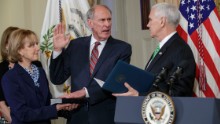


















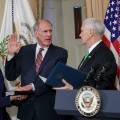
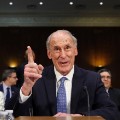
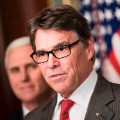
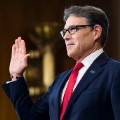
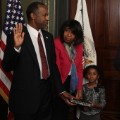
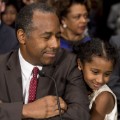
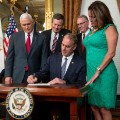
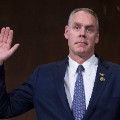
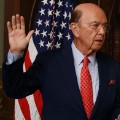
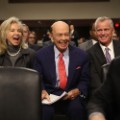
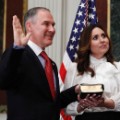
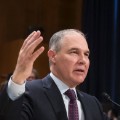
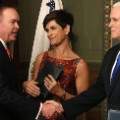
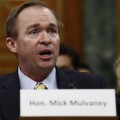

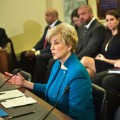
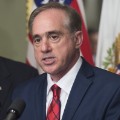
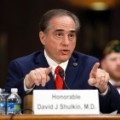
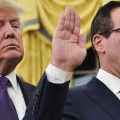
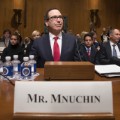
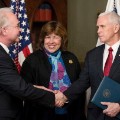
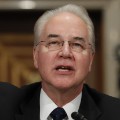
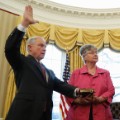

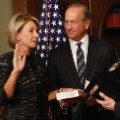


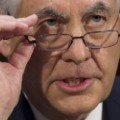



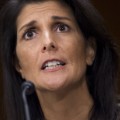
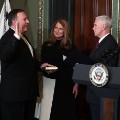



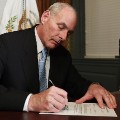
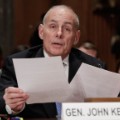

No comments:
Post a Comment